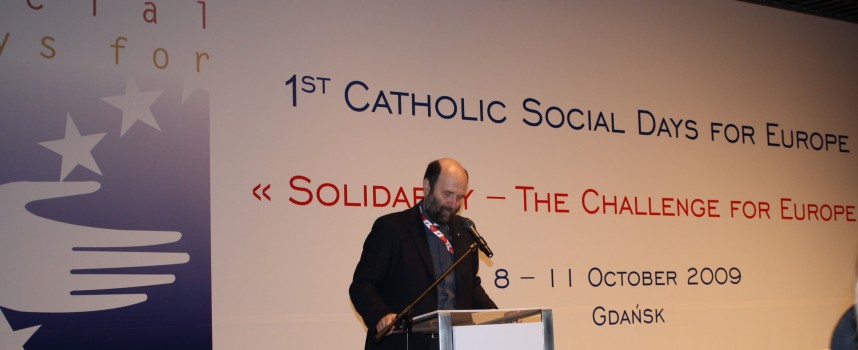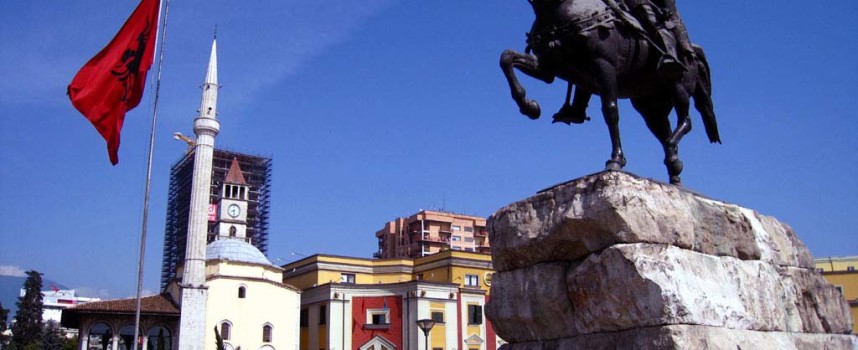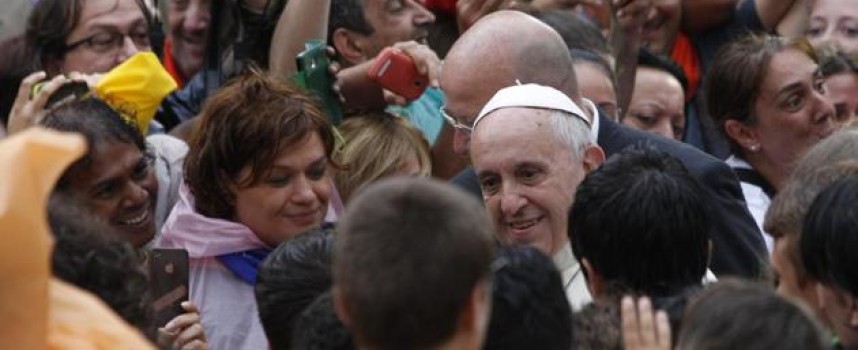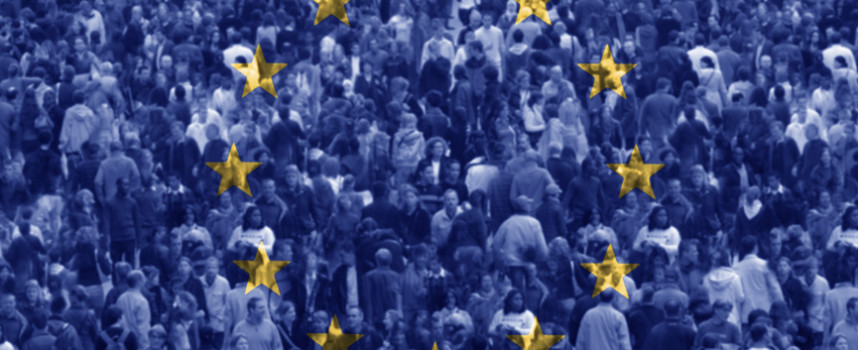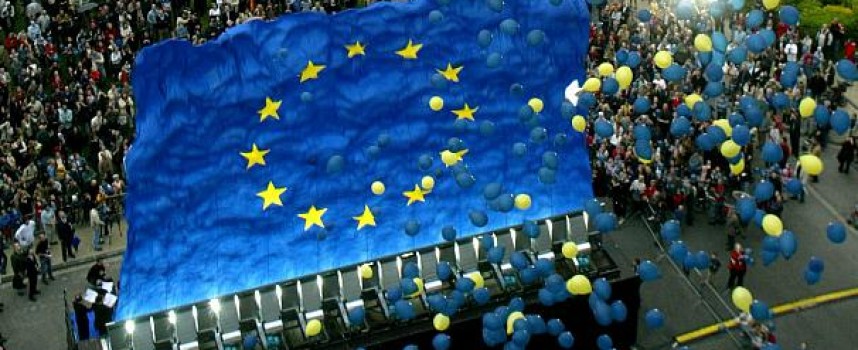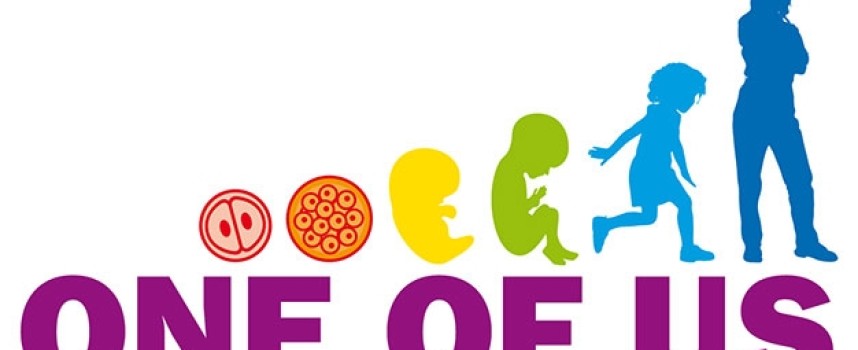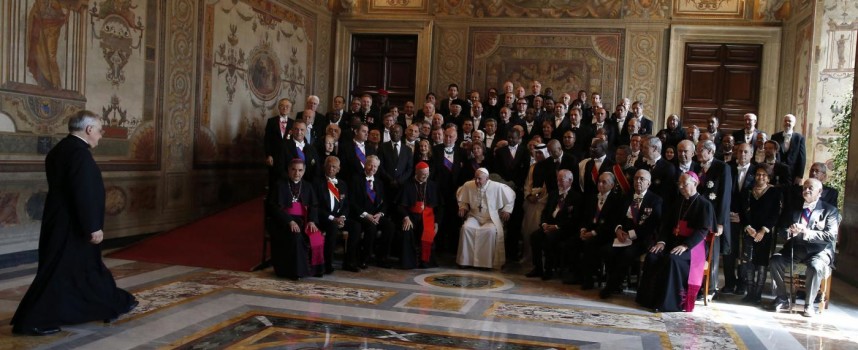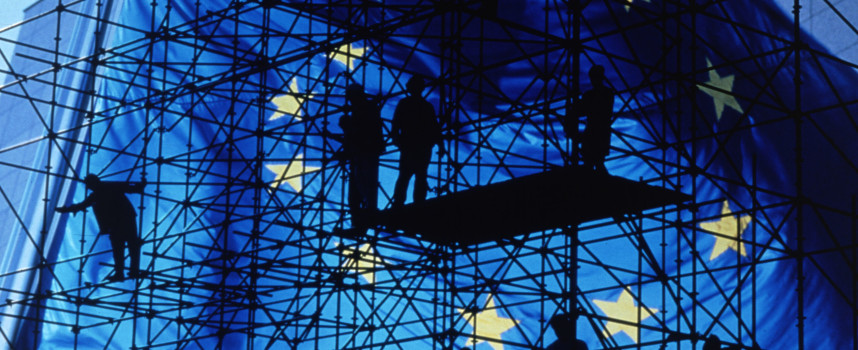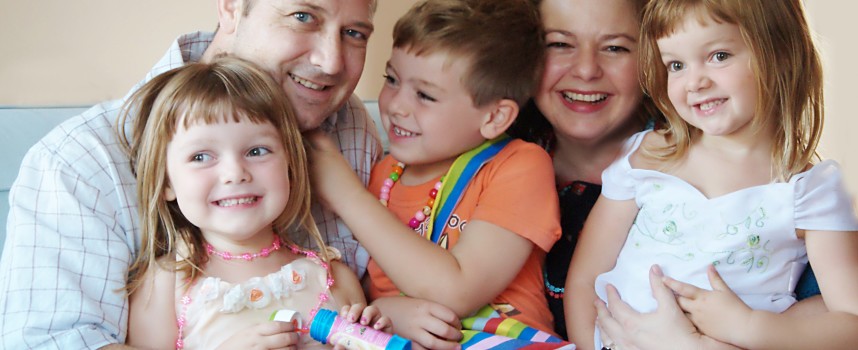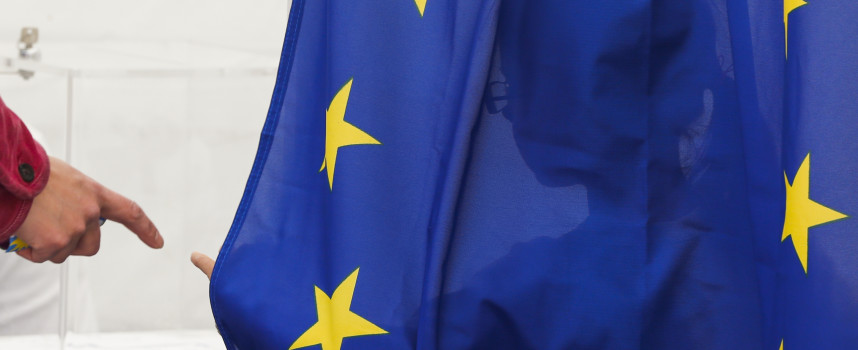The future of Europe
EN | IT | FR | DE – It’s on line the website for the second European Catholic Social Days (Madrid, Spain, 18-21 September 2014) on the theme “The Christian faith and the future of Europe”. The meeting is promoted by Comece (the Commission of the Bishops’ Conferences of the European Community) and Ccee (the Council of European Episcopal Conferences), together with the Archdiocese of Madrid. The first “European Catholic Social days”, promoted by Comece, were held in Gdansk from 7 to 9 October 2009. “Eurcom-Journalists for Europe” launches a debate in the light of the September event.
EN | FR | IT – Pope Francis began on the 15th of June, to invest the European question. By an unexpected entry: Albania, where he announced his visit on September 21st . The choice sounds like a provocation. This nation is located on the edge of the continent. It has less than 3 million inhabitants. It is plagued by organized crime. It is predominantly Muslim after having been under the Communist dictatorship, more openly atheist. For a pope it is certainly not the place where the future of Catholicism is at stake that prepare on the contrary his next two trips to Asia.
EN | DE | IT – Pope Francis chose a special place to rouse Europe from its torpor: St. Mary’s Basilica in Trastevere, where the Community of Sant’Egidio attends its services. In simple words, Pope Francis called the European malaise by its name: “People that do not watch over their elderly, do not care about their youths, are people without a future, people without hope”. Because “youths – children, young people in general – and the elderly bring history forward”.
EN | IT – Every debate about the perspective of European unity should be considered within the dialectical poles of monist or polyarchical forms of the distribution of power. Not surprisingly, Benedict XVI, aiming to give substance to the “institutional path of charity” in the supranational arena, refers to the principles of solidarity, subsidiarity and polyarchy (Caritas in Veritate, 57, 67). These elements are peculiar to political authority, and make it capable of global governance and of conforming to the imperative of respect for the dignity of every individual, involved – as Pope Francis notes – “in a network of communitarian relationships” (Lumen fidei, 40).
EN | IT – In the book “Turbulent and Mighty Continent: What Future for Europe?” (published in Italy by Il Saggiatore in 2014) by Anthony Giddens, let’s take a passage from the introduction by the same author, who, in a few lines, points out the basic question already highlighted by Jacques Delors: are we at the end or at the transformation of the “dream” of the Founding Fathers? How to get out of a ‘paper’ European Union and enter what Giddens calls the “community of destiny”? Anthony Giddens, an English sociologist, directed the London School of Economics and sits in the House of Lords. His works include “Europe in the global age” (2007).
EN | PL | IT – Regardless of how the dispute over European democracy will develop, we must say that “One of Us” as a social campaign, was a great success for European citizens and pro-life NGOs. For the first time there has been extensive cooperation among the pro-life movements from all over Europe. The European Federation of Pro-life Movements “One of Us” was founded. The introduction of the theme of the defence of life in the public debate in Europe has carried out a great educational task. The organizers of the initiative are determined not to surrender their weapons, but to continuously monitor the EU financial policy. Other ways are not passable, at least for now.
EN | FR | IT – Pope Francis does not hide his difficulty in understanding the European Union. Yet, his exhortation Evangelii gaudium may be useful in undertaking the building of Europe.
EN | IT – A few days after the results of the European elections is still very heated debate on the future of the EU and more generally of Europe. The growth of pessimism and skepticism – far from weakening the commitment of those who believe in the Europe of peoples, cultures, spirit – imposes an in-depth analysis on the reasons of being European citizens today. Bearing this in mind, we will offer some reflections of the great figures of European cultural history. We will open this path with Romano Guardini (1885-1968), Italian-German philosopher, European philosopher and thinker of Europe.
EN | IT – On May 15th, 2014, International Day of the Family, in New York, a group of Elected Legislative representatives from throughout the world launched the “Declaration on the Rights of the Family”. Declaration was prepared by a small group of parliamentarians from diverse parts of the world, embracing representatives from Argentina, Ireland, Italy, Poland, Spain, USA, as well as others, including international law experts, coordinated by Senator Jim Walsh from Ireland. They met in 2012 and agreed to draft a document that would reaffirm the bedrock of human rights on the family, based on marriage between one man and one woman, existing in international law: a theme that is central to the debate, even in our Europe.
EN | FR | IT – Once again, another 9th of May which will pass unnoticed. A date ignored, apart from the valiant members of the European Movement. The 9th of May, 2014 will be however accompanied by a French-German meeting between François Hollande and Angela Merkel on the Baltic. But it will be a European feast day with no joy. Yet all the ingredients are combined together for a real European campaign: the destabilization of our Ukrainian neighbour, and the lessons that have still to be learned about the crisis in the Euro zone, to mention only the topics that should be obvious.

